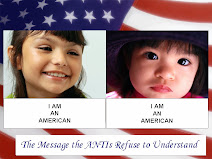 Washington (CNN) -- A federal judge temporarily blocked enforcement of a tough immigration law in Alabama on Monday. Opponents of the measure -- including state church leaders, the U.S. Justice Department and the American Civil Liberties Union-- had asked U.S. Judge Sharon Lovelace Blackburn to stop the law, which was scheduled to go into effect Thursday. State officials argue the law would help Alabama and not violate civil rights.
Washington (CNN) -- A federal judge temporarily blocked enforcement of a tough immigration law in Alabama on Monday. Opponents of the measure -- including state church leaders, the U.S. Justice Department and the American Civil Liberties Union-- had asked U.S. Judge Sharon Lovelace Blackburn to stop the law, which was scheduled to go into effect Thursday. State officials argue the law would help Alabama and not violate civil rights.
In her two-page order, Judge Blackburn said there was not enough time before Thursday to address all the legal arguments from various parties over the law's constitutionality. "It is hereby ordered that Act 2011-535 is temporarily enjoined, and may not be executed or enforced," wrote Blackburn.
The Alabama law requires that police "attempt to determine the immigration status of a person who they SUSPECT (Racial Profiling) is an unauthorized alien of this country," according to an Alabama House of Representatives fact sheet. That provision is similar to other laws aiming to crack down on illegal immigration passed by other state legislatures over the past year.
But the Alabama law also includes more expansive measures, including requiring the state to check immigration status of students in public schools. Blackburn made clear her order does not reflect on the merits of either side's legal arguments. She ordered both the state and the law's opponents to file further legal briefs in the case, and said her injunction will remain in place at least until September 29.
Further appeals to higher federal courts could prevent the law from going into effect for months, even years.
During a hearing last week in Birmingham, an attorney with the Southern Poverty Law Center argued the public-school portion of the law is unconstitutional.
Earlier this month, leaders from the Episcopal, Methodist and Catholic churches of Alabama sued the state's governor, its attorney general and a district attorney over the law, known as HB 56. One attorney representing the bishops said in court that representatives of the church did not want to become immigration agents, and that the law would make church officials targets for ministering to illegal immigrants. A U.S. Department of Justice attorney also argued the federal government, not individual states, should control immigration enforcement.








2 comments:
According to the Supreme Court Racial Profiling is legal : In United States v. Brignoni-Ponce 1975, the high court ruled that the “likelihood that any given person of Mexican ancestry is an alien is high enough to make Mexican appearance a relevant factor ( to stop cars near the border )
But this is not in line with current constitutional understanding ( of Law Professors, Universities, many judges, etc ... )
Washington Post
Profiling's enabler: High court ruling underpins Arizona immigration law
July 13, 2010
By Gabriel J. Chin and Kevin R. Johnson
Gabriel J. Chin is a professor at the University of Arizona Rogers College of Law. Kevin R. Johnson is dean and a professor of public interest law and Chicana/o studies at the University of California Davis School of Law.
http://www.washingtonpost.com/wp-dyn/content/article/2010/07/12/AR2010071204049.html
Some excerpts :
Supporters and opponents of S.B. 1070 assume that racial profiling is unconstitutional, largely because many Americans believe that it ought to be. In fact, the U.S. Supreme Court has approved the racial profiling permitted -- indeed encouraged -- by S.B. 1070.
In a 1975 case regarding the Border Patrol's power to stop vehicles near the U.S.-Mexico border and question the occupants about their citizenship and immigration status, United States v. Brignoni-Ponce, the high court ruled that the "likelihood that any given person of Mexican ancestry is an alien is high enough to make Mexican appearance a relevant factor." In 1982 the Arizona Supreme Court agreed, ruling in State v. Graciano that "enforcement of immigration laws often involves a relevant consideration of ethnic factors."
ad_icon
Arizona's immigration law states that a "law enforcement official or agency . . . may not consider race, color or national origin in implementing the requirements of this subsection except to the extent permitted by the United States or Arizona constitution." Although supporters of the law, including Gov. Jan Brewer (R) and other state officials, have said repeatedly that racial profiling is prohibited in its enforcement and that those charged with carrying out the law will be trained to avoid it, the fact that the legislature included this careful exception is significant.
Lawmakers took care to embrace the reliance on race permitted by cases such as Brignoni-Ponce. This choice deserves acknowledgment and discussion, just like that received by the rest of the law.
Brignoni-Ponce has resulted in immigration enforcement that many contend is race-based and in violation of the U.S. Constitution. In case after case, in states including Florida, Iowa and New York, defendants arguing that Border Patrol stops constituted unlawful searches and seizures under the Fourth Amendment have encountered claims by the U.S. government -- including the current administration -- that "Mexican" or "Hispanic" appearance, along with other factors, justified an immigration stop. Border enforcement officers regularly admit in court that "Hispanic appearance" is one reason for an immigration stop.
.
Looking to expand or shift your business in other state or country. The biggest problem you will face is to clear all the formalities and legal concerns. These must be done in a professional way. If it is not done professionally, you will face legal problems in running your business. We must contact an expert and experienced attorney to help us.
Business Immigration Services
Post a Comment